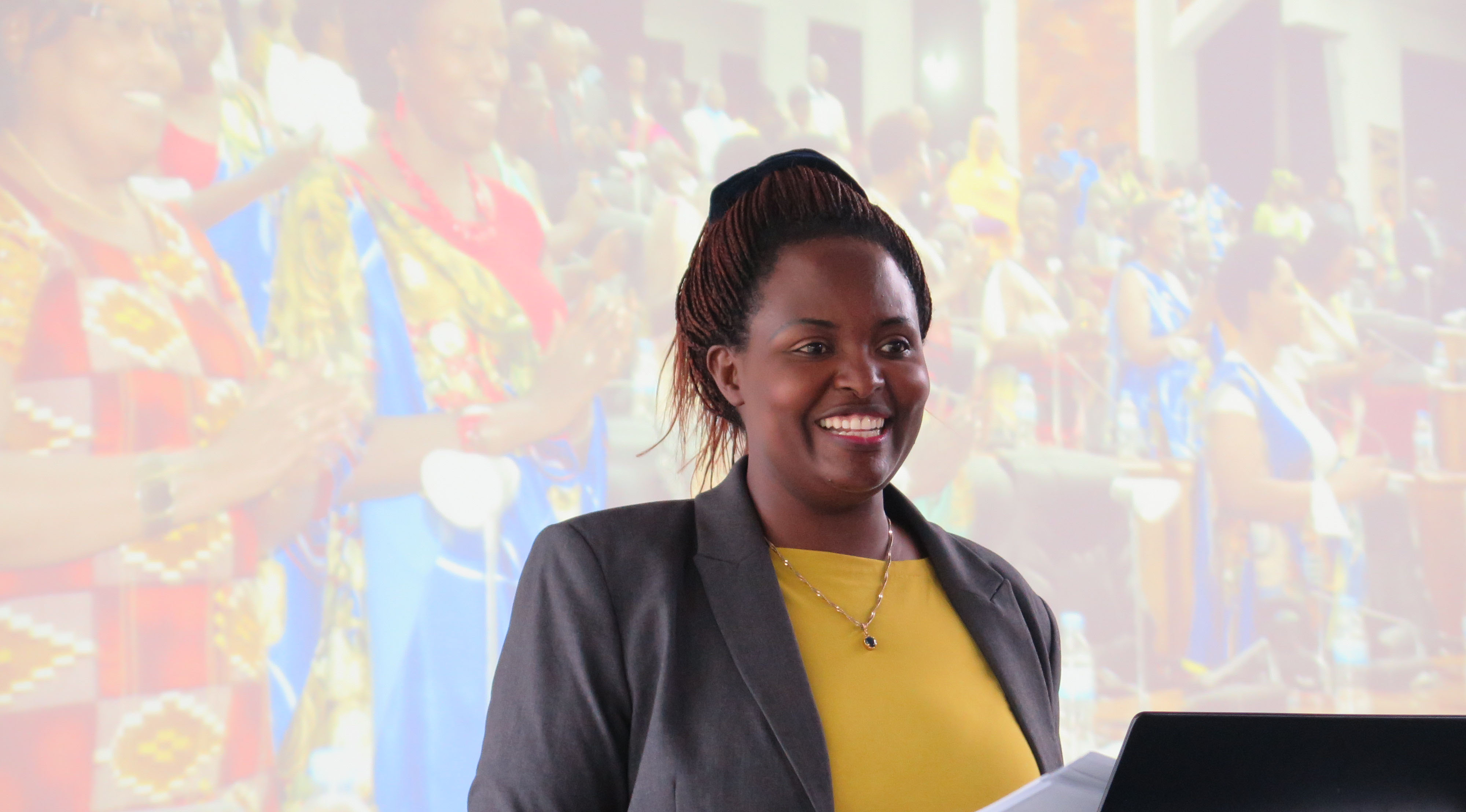Rwanda – A Country of Women
From May 23 to 27, PeaceWomen Across the Globe organized a week of events under the heading “Rwanda – A Country of Women.” Justine Mbabazi, an expert in women’s rights and conflict, went to various cities in Switzerland to talk about how Rwanda is trying to put the shadow of genocide behind it and about the crucial role played by women in this process.
The varied program kicked off with a KOFF roundtable on “Transitional Justice and Reconciliation in Rwanda: Lessons Learned from a Gender Expert,” in which Justine Mbabazi engaged with the participants and discussed how, in the wake of the tragedy, Rwandan women banded together and decided to take the fate of their country into their own hands. “After the genocide, it was clear to everyone that politics run by men had failed. So there wasn’t any significant resistance when the women demanded equal rights and fair political participation,” she said. Aside from her appearance at the KOFF roundtable, Justine Mbabazi also spoke at two secondary schools, the Universities of Bern and Basel, the Rote Fabrik cultural center in Zurich, the United Nations Office at Geneva and the Cinématte movie theater in Bern.


